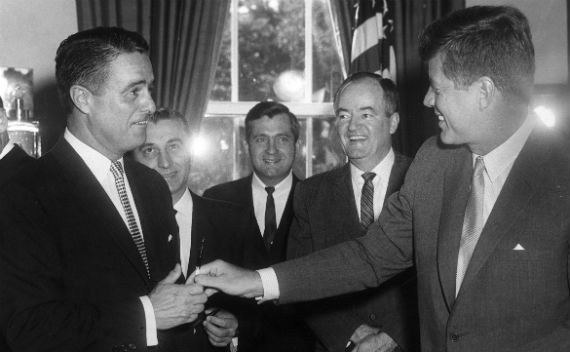The Peace Corps and American Interest in Africa
More on:

This year marks the fiftieth anniversary of the founding of the Peace Corps by President John F. Kennedy and his brother-in-law, Sargent Shriver. President Kennedy founded the Peace Corps just at the moment that most sub-Saharan African states were moving toward independence, a process that was welcomed by anti-colonial Americans. He also tapped into the American idealism that flourished in the 1960’s, which included dramatic progress toward racial and gender equality in the United States.
One concrete example of the Peace Corps’ influence on Africa is former vice president Atiku Abubakar’s establishment of the American University of Nigeria (AUN) in Yola, Adamawa state. The AUN is a secular university and based on American education models to which Abubakar was introduced by Peace Corps volunteers working in his village when he was a boy. The National Peace Corp Association, a private non-profit supporting returning Peace Corps volunteers, honored the former vice president for his contribution this past weekend.
Last spring, I participated in a program at the University of Wisconsin-Madison that also commemorated the fiftieth anniversary. Present were many Peace Corps alums from the 1960’s. Many of them talked about how serving as Peace Corps volunteers in Africa was their first introduction to a part of the world largely unknown in the United States—unlike the UK, France, Germany, and Italy, the U.S. never had a significant colonial presence in Africa.
The Peace Corps, therefore, has made an important contribution to the relationship between the United States and Africa that doesn’t lend itself to quantification, but nevertheless is real.
More on:
 Online Store
Online Store
